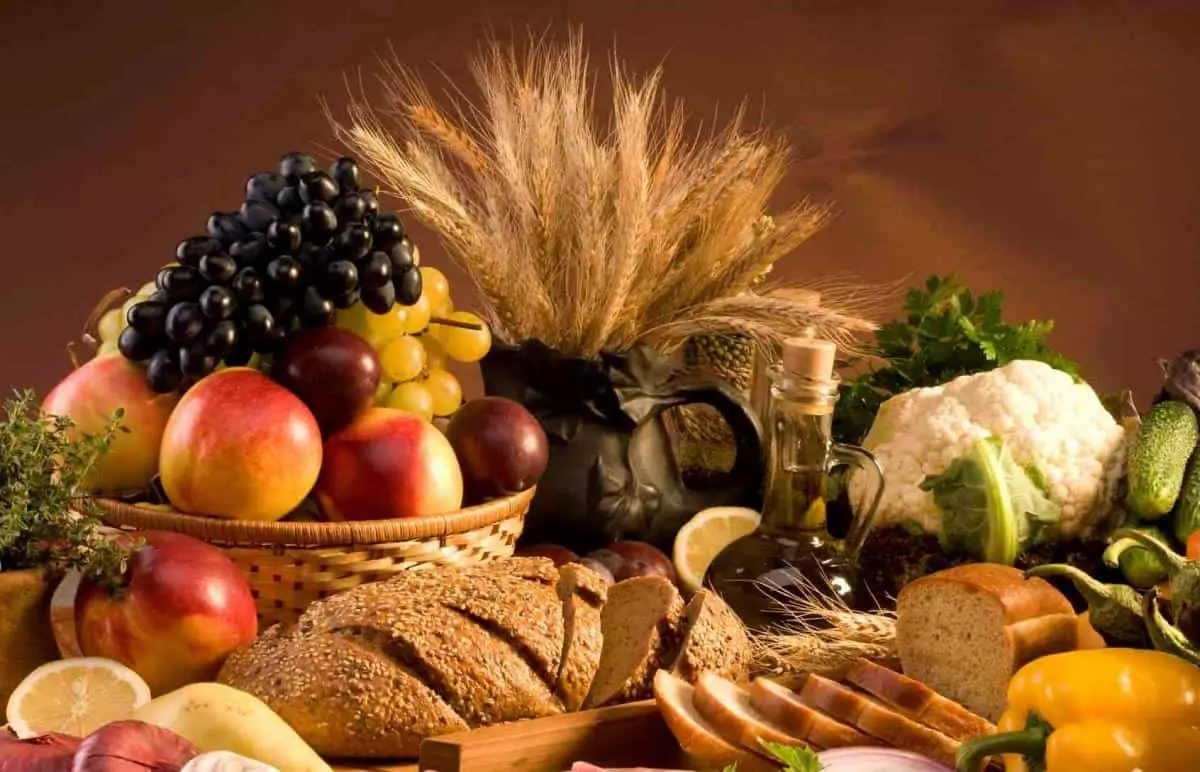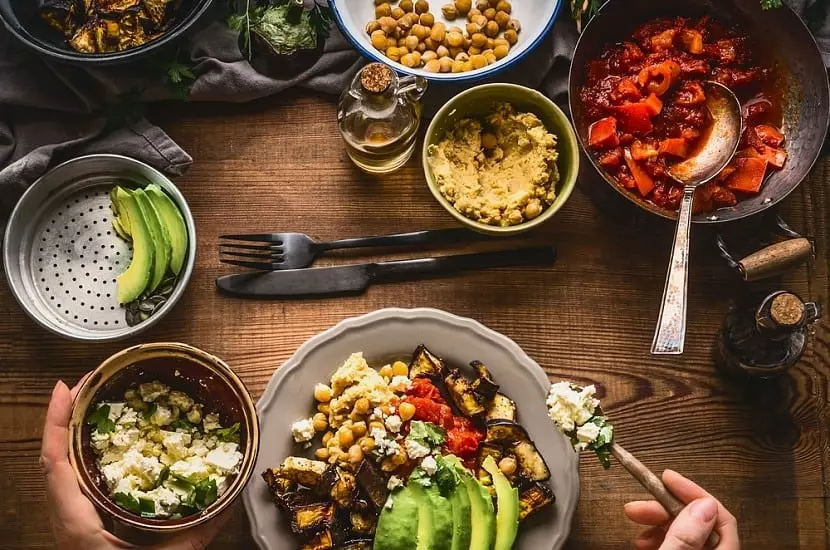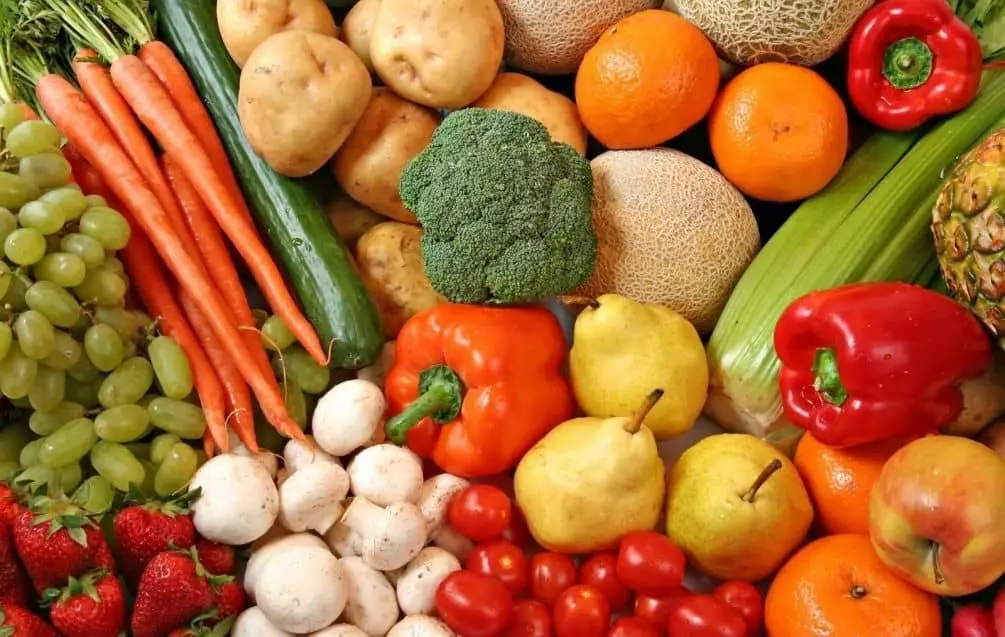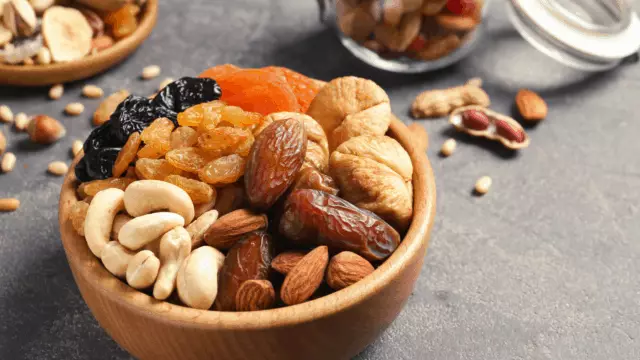The post - represents not just a diet, but has a goal to clean the body, soul and human mind. It is very important to start fasting right - not thoughtlessly, for example, today embarrassed with meat, and the next day they abandoned him, but gradually cutting the use of unhisal products in the diet.
What you can eat in the post, what food is allowed, and what is under the ban? And how much in general in the church calendar posts? I propose to deal with questions in this article.

Number of multi-day posts in the year
Find out what awaits you today - a horoscope for today for all zodiac signsOnly for the year of Orthodox Christians falls 4 multi-day posts:
- Great post - It is considered the longest and strict. It begins with a forgiveness of Sunday (completes the carnival week) and continues until Easter. In 2020, the Great Post began on March 2 and will last until April 18, and the 19th day will be the bright Sunday of Christ. About how to eat to the great post, we will talk in detail further in the article.
- Petrov post - 2020 will continue from June 15 to July 11. At this time, it is necessary to stop eating meat, dairy products, eggs and mayonnaise. On Tuesday, Thursday, Saturday and Sunday permissible to eat fish.
- Assumption post - connected with the Holy Virgin Mary. His date remains unchanged annually, falls for the interval from 14 to 27 August. For the extension of the Assumption post, believers can eat black bread, vegetables and fruits, bean, honey, nuts, porridge, grain and dried fruit. You can not eat meat and fish, all dairy and eggs.
- Christmas post - It begins 40 days before the Christmas of Jesus Christ - from November 28 to January 6. The use of vegetables, fruits, legumes, any options for porridge, nuts, seeds, black bread is allowed. And from December 6 to January 2, you can diversify the launch menu by fish. From January 2 to January 6, we return to a more tough post.
What is the spiritual meaning of the post?
Some people are confident that during the post it is important to simply adhere to certain nutritional restrictions. In fact, this approach cannot be considered correct: the post also implies the abstinence of a Christian from worldly communication, entertainment.
It is impossible to make the main focus only on the landing menu, because except food is very important to perform the following actions:
- Regularly pray to God;
- Clean your soul from sin;
- get rid of such negative human qualities as anger, aggression, greed, foul language, envy and other similarities;
- refuse carnal joy;
- sincerely repent of those misconducts that you committed;
- Actively engage in charity: sacrifice something (money, time, knowledge) for the benefit of other people;
- Read spiritual literature.
And only if the believer will comply with all of the designated recommendations, it will be able to achieve full-fledged purification in physical and spiritual levels. Plus, it will strengthen in his faith.
By numerous requests of readers, we have prepared an application "Orthodox calendar" for a smartphone. Every morning you will receive information about the current day: Holidays, posts, commemoration days, prayers, parables.
Download free: Orthodox calendar 2020 (Available on Android)

Strict and non-stored post: Main differences
Many people wonder: "In a strict post, what can I eat and what does it differ from the non-stroke post?". The differences between them really are, they consist in the list of permissible food products.Strict post - implies a refusal not just from meat, fish, but also from all foods having an animal origin: eggs, milk, cottage cheese, sour cream, cheese and all dishes prepared on their basis. It is also a refusal of sweets, baking, alcoholic beverages. Also, there is also a strict post there is a lot of roasted and fat.
Allowed: Eating any porridge, vegetable soups, baked or cooked vegetable.
Non-storied post - You can make your diet slightly more extensive, complementing it with any seafood, vegetable oils, useful sweets, mushroom broths, ear, baking (in which there are no eggs), salads, refilled by lean mayonnaise.
Important! Before starting to fast, it is recommended to conduct a medical examination to find out if you have any contraindications.
What is in the post
What is eaten in the post is an important question for those who want to introduce him into their lives. From the recommended products, you can call any plant food that the most likely to taste.
There are minor exceptions to the rules: for example, on the holidays of the Annunciation (April 7) and Palm Sunday (April 12), it is permissible to pamper yourself with the gifts of the sea, in particular, fish. And on the day of the Lazareva Saturday, believers traditionally dealt with fish caviar.
Important moment! The priests say that all healthy adults can fast, but do not advise the post for women in the position, small children, pensioners and those who suffer from protracted diseases. If they want to fast, then they should do it in a special mode.
Food to the Great Post: Allowed Lean Products
The great post lasts longest and is of the greatest importance in the life of Orthodox Christians. It is important to remember that fasting is not equivalent to constant hunger strike or use only porridge on water.
You can easily create a tasty and useful lean menu, replete with fresh vegetables, fruits, grilled vegetables, salads and other natural goodies. As a result, the body will cleanse the slags accumulated in it, will be filled with new energy of life, you will feel much better.
Let's look at what landing products need to eat during the Great Post:
- Vegetables and fruits: Potato, carrot, beet, pumpkin, corn, cabbage (ordinary, peking, broccoli, color), corn, cucumbers and tomatoes, radishes. Apples, pears, oranges, bananas, strawberries, raspberries, plums, peaches - choose what you like more. And listed were far from all delicious representatives of the plant world rich in vitamins.
Vegetables with fruits can be used in raw form, coach, cook, prepare for a couple or roast.

- Crup : Rice, buckwheat, semolina, wheat, oatmeal, millet, bang, millet and other. Any cereal is rich in useful trace elements and vitamins, it will bring unambiguous benefit to the body, it will help to easily and harmoniously cope with food restrictions.
- Mushrooms : White, champignons, weird, chanterelles, thickens. Mushrooms are a plant analogue of meat, because the raw contains about 4 percent of the protein, and if you use dried mushrooms, then this indicator will increase to 70%! And, of course, do not forget about vitamins, minerals, amino acids in the composition that participate in many vital body reactions.
- Bean . Today, many scientists suggest that plant proteins are not worse than the human body than an animal. And it is very much contained in Lentil, nute, peas, beans.
- Nuts : walnut, almond, cashew, hazelnut, forest nuts - Choose natural gifts to your taste.
- Dried fruit : Kuragya, raisins, prunes, figs, dates, Cucats - Except that they are incredibly tasty, also establish the proper work of the intestine.
- Seeds : Sunflower, pumpkins, sesame. In seeds are contained in a large number of fats and carbohydrates that will help you can stand in a good mood and feel cheerfully, vigorously.
Interesting! You can eat dried fruits, nuts and seeds, both in an independent form and add them to the main dishes: put in porridge, peel the salad.

- Homemade pickles . When, as not to open the mother's and grandmother's ordering and enjoy the delicious cucumbers, tomatoes, eggplants, cabbage, pickled cabbage, mushrooms or swam in a can of salads (such as homemade cells).
- Vegetable oils : sunflower, olive, linen, corn, pumpkin, sesame. Dishes are prepared on the oil, and useful salads of fresh vegetables are refilled.
- Greens : lettuce leaves, dill, parsley, basil, taruhun, mint, melissa, onion. Again, you can eat them in pure form if you like, or add to salads, garniram. Greens just replete with useful vitamins and microelements.
- Flour products . Although they are not helpful, but still sometimes you want to eat a plate of macaroni or pasta. And you may well afford such pleasure on benchmarks. Just choose those pasta that were produced from solid wheat varieties.
- Sweets : honey, jam, jam, halva, kozinaki - that is, those in the production of which eggs, butter and other dairy products were not used. Also allowed to eat gallery cookies, crackers. But even though sugar is not considered an animal product, do not forget that the fasting person should get rid of all sorts of temptations for full-fledged internal purification. Therefore, do not abuse with sweets (moreover, there is no benefit to health from it).
- Drinks : Coffee, black and green teas, compotes, plays, fruits, fruits and vegetable juices, natural frisses.
- Bread . To get a larger saturation from eating, fool a couple of pieces of bread, but make an emphasis on a rzhan, malt or bran bread. It is important to choose bread that does not contain eggs, dairy products in its composition.
Important! On the day of net Monday, the Great Friday and Passatory Saturday, you need to fully reduce food intake. These dates are allowed only to drink water.
Forbidden products
But from what for the great post will have to abandon it from:- any meat (pork, beef, lamb, veal, chicken, ducky, housing, turkey);
- Fish dishes and marine products (exceptions are possible, but only for special days);
- eggs;
- milk and all dairy products (cottage cheese, sour cream, kefir, yogurt, ryazhenki, prostrochy, cheese);
- mayonnaise;
- animal fats;
- white bread;
- chocolate and chocolate products;
- Alcohol (though, sometimes consuming church wines of Kagora in small quantities and for special days).
What can be in the post: Monastery Length Menu
Next, an approximate weekly menu designed for believers is proposed. It takes into account all the rules of the post. If you are not enough food, you can add something from the lean dishes (for example, vegetable or fruit salad, porridge, vegetable cutlets and so on).
Monday
- In the morning you can taste oatmeal, which is flooded with hot water, finely chopped dates, nuts, figs, raisins are added to their taste.
- For lunch, eat potatoes baked in the oven with a portion of a sauer cabbage and a couple of lean breadheads.
- For dinner - portion of vinegar or vegetable salad.
Tuesday
- For breakfast eating a semolina porridge, cooked on the water.
- Dinner pumpkin cream soup with several slices of rye bread.
- Dinted by stew or baked vegetables (potatoes, cabbage, carrots, tomatoes, eggplants or others on your choice).
Wednesday
- For breakfast there is a portion of an apple puree, which is added chopped walnuts, a few lean breadheads.
- Dine need a pea soup with breadcrumbs.
- Dinner - fruit salad (persimmon, bananas, dates, oranges).
Thursday
- For breakfast there is a portion of pumpkin porridge with raisins.
- For lunch - lean soup from beans and fresh cabbage, several slices of rye bread.
- Dinner is a portion of rice with refueling from tomatoes.
Friday
- Breakfast is a squeezed beet with the addition of prunes.
- For lunch - potatoes in the peel with fresh salad and diet loaves.
- Dinner is a buckwheat porridge with lential cutlets and tomato, compote from dried fruit.
Saturday
- For breakfast - a portion of pancakes with a banana, in their preparation is used vegetable milk, without eggs
- For lunch - a plate of mushroom broth with vermicelline.
- For dinner - nuts with a grazing loaf with tomato and bell pepper.
Sunday
- For breakfast - a portion of buckwheat porridge with a filling with mushrooms.
- For lunch - borsch without meat with beans and crackers.
- For dinner - a portion of a skim rice pudding with the addition of dried fruits.
In conclusion, I would like to recall once again that if you have any health problems (especially with the gastrointestinal authorities), consult your doctor before the post!
